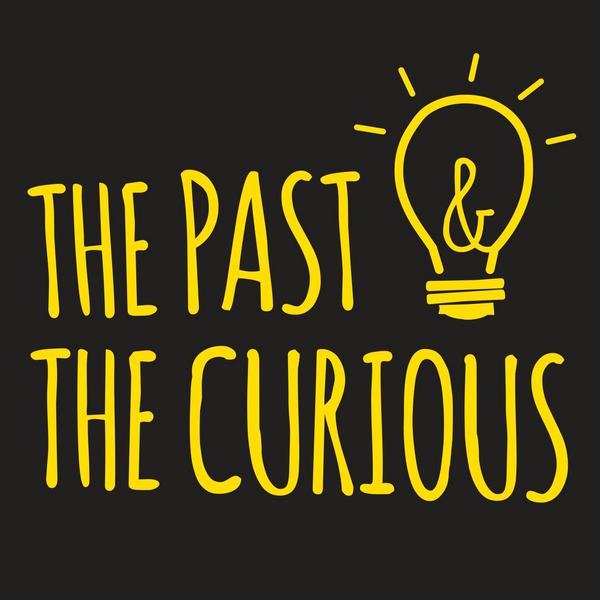
The Past and The Curious: A History Podcast for Kids and Families
Mick Sullivan
A History Podcast for Kids! Parents love us, Teac…
- 35 minutes 43 secondsPeanut Butter and Jelly
You might be surprised to learn the history of the iconic sandwich and all of the ingredients that go into the recipe. First published in 1901, the availability of peanut butter, jelly and sliced bread has changed a lot over the years. And that's great, so let's eat (or just listen).
Special thanks to Lindsay and Marshall from Tumble Podcast for their inspiration on the subject, and help with this episode!
28 January 2026, 9:39 am - 30 minutes 44 secondsMisers
Two misers for the price of one!
Charles Dickens created the world-famous character Ebenezer Scrooge in the 1840s, but he may have been inspired by a real-life miser named John Elwes.
Another famous miser is buried in a Jewish cemetery in Krakow, Poland. However, it turns out that Yossele the Holy Miser wasn't as miserly as everyone believed him to be during his life.
29 December 2025, 8:56 am - 31 minutes 50 secondsArt Spies and Underwater Toilets
Two fascinating stories from World War II. One is about Rose Valland, a French woman who worked as a spy in Nazi-occupied Paris. Her bravery saved thousands of works of art, many of which were returned to the families who originally owned them.
Secondly, the story of German U-boat U-1206 is a doozy. The new toilet onboard was confounding, and it got the the better of the boat's commander. The result was a big blunder by the German Army.
30 November 2025, 9:06 am - 33 minutes 42 secondsMoving Water
The Erie Canal and The Chicago River were two of the most impressive engineering feats in history.
For the 200th Anniversary of the opening of the Erie Canal we look at the opening celebration, along with a fun musical diversion or two.
And how can you talk about moving water without talking about the efforts to change sanitation in Chicago? This included reversing the flow of the river that runs through the city!
31 October 2025, 8:15 am - 22 minutes 26 secondsKids Listen Big Emotions
We're a part of Big Emotions this week! We’re feeling all squishy this week, as we dive into two of the strongest emotions of all. Love is powerful, joyful, and comforting - and when it changes or we feel its absence, sadness often follows. Sadness can feel heavy, but it helps us slow down, notice what matters, and deepen our connections. In this episode, we explore the softer, quieter corners of the heart where love and sadness meet. You’ll hear stories of friendship, loss and connection, showing how these big emotions help us grow and understand ourselves in new ways.
Contributing podcasts in this episode: But Why: A Podcast for Curious Kids• The Past and The Curious • Newsy Pooloozy
Hosted by: Jerry Kolber of Who Smarted?
PDF Activity Sheet for SEL
Check out the music in each episode
About this series: Big Emotions: Kids Listen Mashups is a 7-part audio adventure where creators from the Kids Listen community come together to explore feelings in all their shapes and sizes. Each episode pairs two related emotions, sharing original clips and reflections to help kids (and grownups!) understand, name, and navigate their feelings.
Follow Kids Listen on Instagram and LinkedIn
27 October 2025, 2:45 pm - 22 minutes 32 secondsHalloween Special: Twain's Ouija Novel
Did a no-longer-living Mark Twain send a novel from the great beyond with a Ouija Board? Find out about the real story with help from our pal Nate DuFort of the podcast, Unspookable.
15 October 2025, 10:33 am - 36 minutes 24 secondsVery Hairy
Episode 110! Peter the Great, The Hairy Eagle and more!
Did I decide on an episode about Peter the Great just so I could say 6-7 a few times to be cringe and make kids laugh? Yes, yes I did. But it's a really fun story about when the Tsar of All Russia travelled "incognito" through Europe.
And as a bonus, we're talking hair sales, hair wreaths, and even the not-so-famous "Hairy Eagle!"
30 September 2025, 7:45 am - 33 minutes 22 secondsHandwritten
Episode 109 tells the story of Lincoln's the speech Lincoln lost before his inauguration in 1861.
Also included is the story of Ely S. Parker, an indigenous Seneca man who made an impact in the Civil War - and who had really nice handwriting.
29 August 2025, 7:35 am - 32 minutes 28 secondsLost Bones
Composer Joseph Haydn is buried with two skulls. You'll never believe why (hint: it has to do with phrenology).
Meanwhile Thomas Paine's bones went missing thanks to an overly enthusiastic fan.
30 July 2025, 9:35 am - 31 minutes 25 secondsMountains To Climb
Henriette D'angeville was the first woman to climb Mount Blanc in the Alps, despite everyone advising her not to try it.
Decades later, Julia Archibald Holmes (a friend of John Brown's) became the first woman to summit Pike's Peak, a feat that Pike himself never did.
30 June 2025, 11:24 am - 34 minutesElectric Kids
Philo Farnsworth loved electricity so much he came up with a way to invent television - as a 14 year old!
Centuries beforehand Stephen Gray, a British scientist, learned more about electricity than anyone before him - and he used children to show how it worked!
30 May 2025, 7:43 am - More Episodes? Get the App